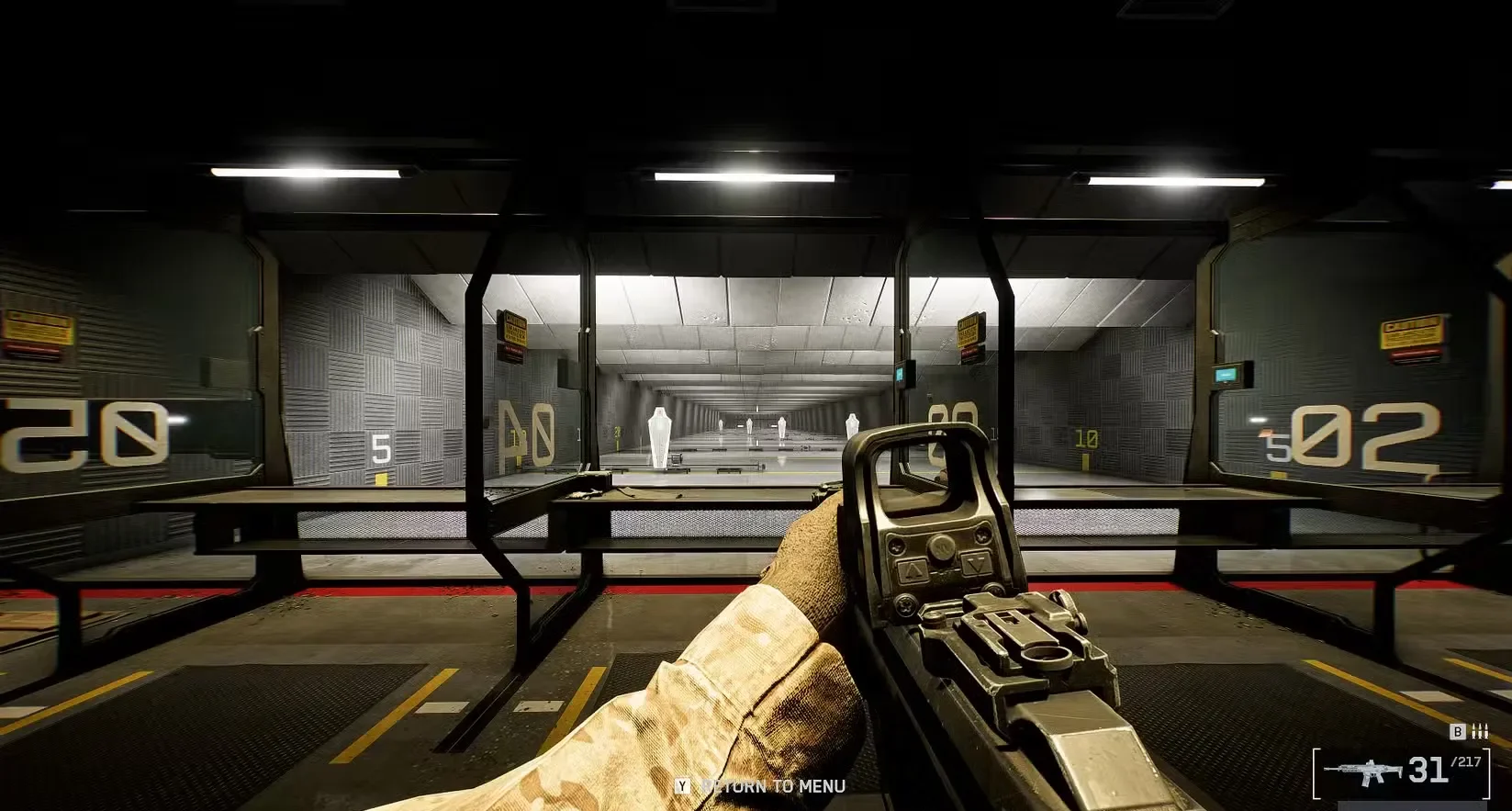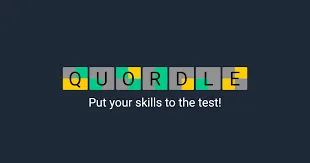Battlefield 6 has exploded onto the gaming scene, and it’s not hard to see why. Whether you’re dropping into the action-packed campaign or jumping into massive multiplayer battles across all game modes, this game delivers the franchise’s signature chaos in the best way possible.
But here’s the thing: default settings rarely cut it for serious players. With hundreds of customization options buried in the menus, finding the sweet spot for your playstyle can feel like navigating a minefield. Whether you’re a veteran looking to master combat rolls or a newcomer trying to figure out why your aim feels off, getting your settings dialed in makes all the difference.
I’ve spent countless hours testing different configurations, and I’m breaking down everything you need to know about optimizing Battlefield 6 for controller, mouse & keyboard, and audio setups. Let’s get you fighting at your best.
Why Settings Actually Matter in Battlefield 6
Look, I get it—tweaking settings isn’t the sexy part of gaming. But in a game where split-second reactions mean the difference between getting that Support Class revive or watching the respawn timer, proper configuration is crucial.
The right settings can:
- Improve your aim consistency across different engagement ranges
- Reduce input lag and make movements feel more responsive
- Enhance visibility so you actually spot enemies before they spot you
- Customize controls to match your muscle memory from other shooters
Think of settings optimization as sharpening your complete weapons arsenal before heading into battle. Now let’s dive into the specifics.
Core Gameplay Settings: The Foundation
These universal settings affect your entire Battlefield 6 experience, regardless of input method.
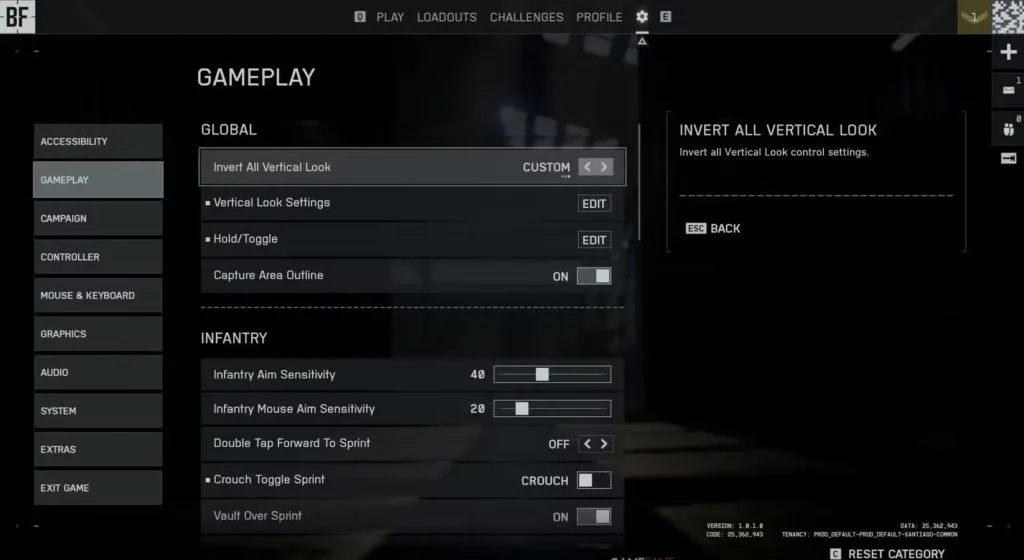
Global Configuration
Here’s what you should adjust first:
Invert Settings:
- Keep most vertical look settings Off for standard controls
- Set Invert Vertical Flight – Aircraft: On (this matches real flight controls and feels more natural when piloting)
Hold vs. Toggle Preferences:
- Infantry Sprint: Toggle – Saves your thumb/finger from constant pressing
- Double Tap Forward to Sprint: Off – Prevents accidental sprints during tactical movements
- Crouch Toggle Sprint: Crouch – Maintains tactical positioning
- Infantry Weapon Zoom: Hold – Gives you instant exit from ADS
- Vehicle Weapon Zoom: Hold – Same reasoning as infantry
- Steady Scope: Hold – You want control over when to hold breath
- Interact & Reload: Prioritize Interact – Prevents frustrating reload attempts when trying to revive teammates
Pro Tip: The “Prioritize Interact” setting is a lifesaver when you’re trying to grab dog tags or revive squadmates in hot zones. Nothing worse than reloading when someone needs you.
Infantry-Specific Settings
Your on-foot combat effectiveness depends heavily on these:
- Vault Over Sprint: On – Maintains momentum during parkour movements
- Sprint Door Barge: On – Makes building entries more aggressive
- Parachute Auto Deploy: Skydive/Insertions – Prevents embarrassing fall deaths
- Roll Camera in Landing Roll: On – Keeps orientation during combat rolls
- Mount Type: Side and Up – Provides maximum mounting flexibility
When you’re pushing objectives or working through Bullet Storm Challenges, these mobility settings become second nature.
Controller Settings: Console & PC Controller Players
Controller optimization deserves special attention because analog sticks work differently than mice. The goal is responsiveness without losing precision.
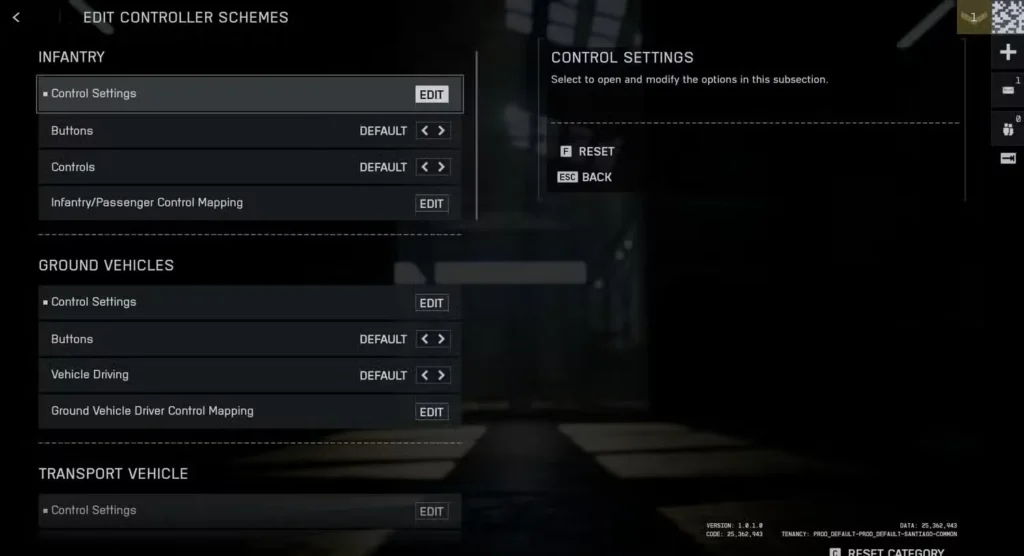
Aim Configuration
Field of View: 110-120 This is huge. Higher FOV lets you see more peripheral action, which is critical when XP farming or holding down contested points. Yes, enemies appear slightly smaller, but situational awareness trumps that every time.
Vertical Aim Ratio: 56 This tweaks your vertical sensitivity relative to horizontal. The 56 setting feels more natural for most players during vertical recoil control.
Key Sensitivity Settings:
- Uniform Infantry Aiming: On – Consistency across all zoom levels
- Zoom Sensitivity Coefficient: 178 – Balances scoped and hip-fire aim
- Infantry Aim Input Curve: BF1, BF4 – Uses the proven response curve from beloved Battlefield titles
- Aiming Acceleration: 8-14 – Start at 10 and adjust based on feel
Stick Deadzones: The Hidden Performance Boost
This is where many players leave free performance on the table:
- Center Deadzone: Set as low as possible without stick drift
- Axial Deadzone: Around 5-6
Lower deadzones mean your inputs register sooner. Test in the Firing Range and gradually reduce until you notice unwanted movement, then bump it up slightly.
Trigger Deadzones: 5 for both LT/L2 and RT/R2
This makes weapon firing and ADS more responsive—particularly important for Assault Class challenges where reaction speed matters.
Controller Vibration: Off
Controversial take, but hear me out: vibration feels immersive, but it introduces micro-movements that affect precision. Competitive players universally disable this. Try it for a few matches—you might be surprised how much steadier your aim becomes.
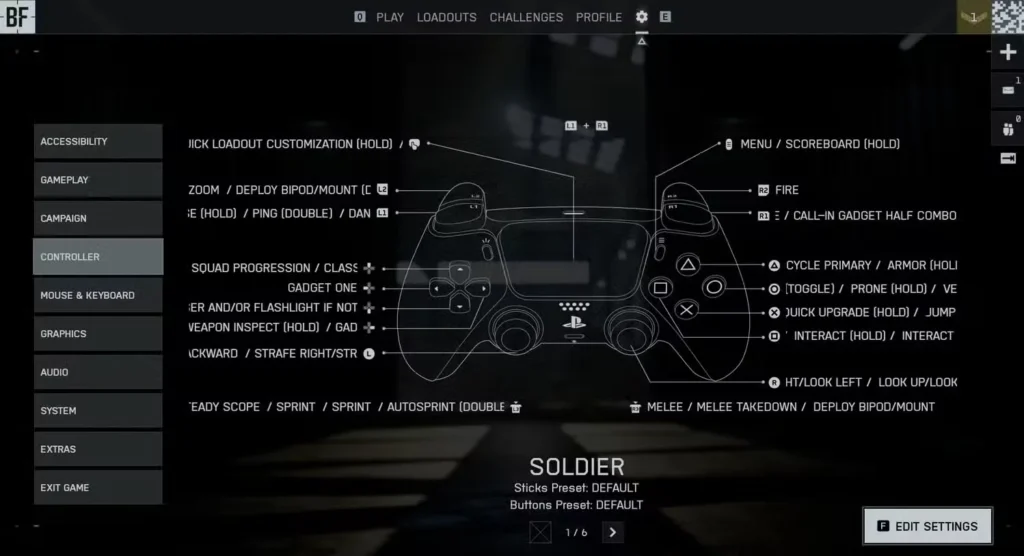
Gyro Aiming (PlayStation & Switch Pro Controllers)
If your controller supports it:
- Infantry Gyro Button: Enable
- Infantry Gyro Aiming Mode: Always
Gyro provides mouse-like precision for fine adjustments. It takes practice but elevates controller aiming significantly.
Mouse & Keyboard Settings: PC Master Race Edition
PC players have different considerations. Raw input and DPI matter more than acceleration curves.
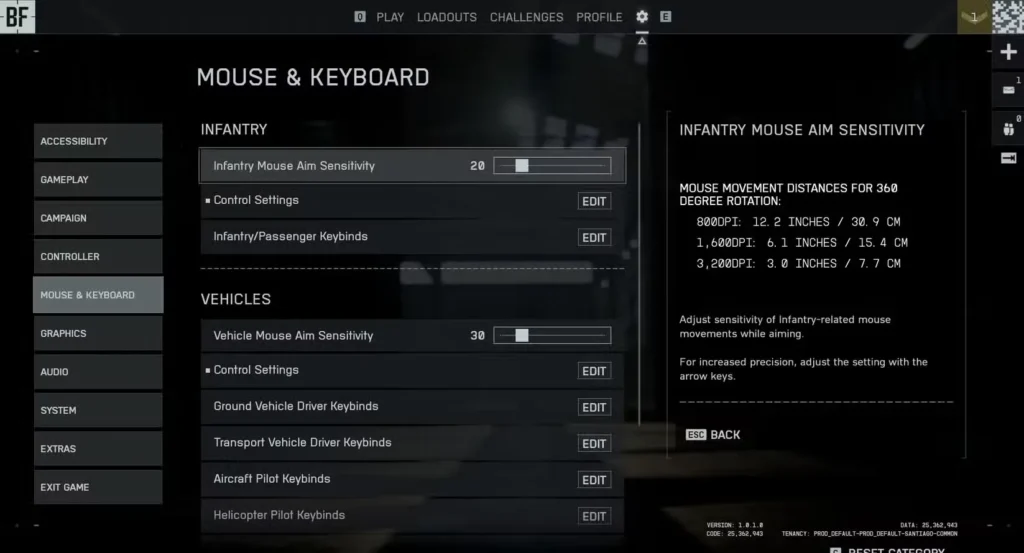
Field of View: 110-120
Same as controller—maximizing visual information is universally beneficial, especially on top-tier maps.
Critical Aim Settings
- Uniform Infantry Aiming: On – Consistency is king
- Zoom Sensitivity Coefficient: 178 – Keeps muscle memory intact when zooming
- Infantry Aim Input Curve: BF1, BF4 – Time-tested response curve
Raw Input: While not explicitly listed in the original settings, ensure raw input is enabled in Windows mouse settings. This bypasses Windows acceleration for true 1:1 input.
Sensitivity: Personal, But Strategic
Mouse sensitivity is deeply personal, but here’s the framework:
- Low-mid sensitivity (400-800 DPI at 5-15 in-game) for precision-focused play
- Higher sensitivity if you prefer quick 180° turns and close-quarters dominance
Working on Recon Class challenges? Lower sensitivity helps those long-range headshots. Grinding Close Quarters challenges? Bump it up for faster target acquisition.
Transferring Sensitivity from Other Games
Here’s a game-changer: use Kovaak’s Sensitivity Matcher to port your muscle memory from other shooters.
The Process:
- Download Kovaak’s Sensitivity Matcher (free tool)
- Set “Select Preset Yaw” to “Measure Any Game”
- In your old game, line up your crosshair on a fixed point
- Press Alt+Backspace to perform a 360° turn
- Adjust using Alt+Minus (overshooting) or Alt+Plus (undershooting) until you complete a perfect 360°
- Launch Battlefield 6, go to the Training Ground Firing Range
- Repeat the 360° test and adjust Infantry Aim Sensitivity until it matches perfectly
This method preserves your trained muscle memory, cutting your adjustment period dramatically. No more guessing or weeks of retraining.
Pro Tip: Visit the Steam page community discussions for sensitivity conversion calculators if you prefer the math approach.
Audio Settings: Hear Your Enemies Before They See You
Audio in Battlefield is criminally underrated. Footsteps, vehicle engines, and directional gunfire provide critical intel.
Volume Balance
- Master Volume: 80 – Protects hearing while staying competitive
- Sound Effects Volume: 100 – Maximizes tactical audio cues
- Music Volume: 0 – Music masks important sounds; disable it
- Commander VO: 65 – Keeps announcements audible without overwhelming
- Soldier & Campaign VO: 100 – Critical for team callouts
Why Zero Music? When you’re stalking enemies during Deadeye Challenges or setting up Danger Close explosive traps, background music obscures the audio cues that separate good players from great ones.
Configuration Essentials
- Audio Mix: Default Mix – Balanced for competitive play
- Audio in Background: On – Hear game sounds while tabbed out
- Hit Indicator: On – Audio feedback confirms damage registration
Voice Chat Settings
- Voice Chat Volume: 85 – Clear communication without overpowering game sounds
- Voice Chat Ducking: 25 – Reduces game volume during active comms
- Enable Gain Compensation: On – Normalizes volume differences between teammates
Coordinated squads dominate Battlefield 6. Check out the Reddit community for squad-finding if you’re playing solo.
Platform-Specific Purchase Links
Ready to optimize your Battlefield 6 experience? Grab the game here:
- Official EA Store – Direct from the source
- Steam – PC players’ primary platform
- PlayStation Store – PS5 optimization available
- Epic Games Store – Alternative PC platform
Advanced Tips: Squeezing Out Extra Performance
Understanding Field Specs
Your Field Specs loadout interacts with your settings. Mobility-focused specs benefit from higher sensitivity, while defensive specs pair well with lower, more precise aim settings.
Playlist Strategy
The difference between Open vs. Closed Weapons Playlists affects which sensitivity ranges work best. Closed playlists with limited weapon pools reward tighter aim; open playlists with varied engagements favor adaptable mid-range sensitivity.
Settings by Game Mode
Don’t be afraid to maintain multiple setting profiles:
- Conquest/Breakthrough: Higher FOV, balanced sensitivity
- Team Deathmatch: Moderate FOV, higher sensitivity for faster reactions
- Hazard Zone: Lower FOV for precision, tactical audio emphasized
Training Ground is Your Friend
The Firing Range isn’t just for warmup—it’s your settings laboratory. Spend 15-20 minutes here whenever you make adjustments. Test:
- Moving target tracking
- Quick 180° flicks
- Vertical recoil control on various weapons
- Audio directional accuracy (have a friend shoot from different positions)
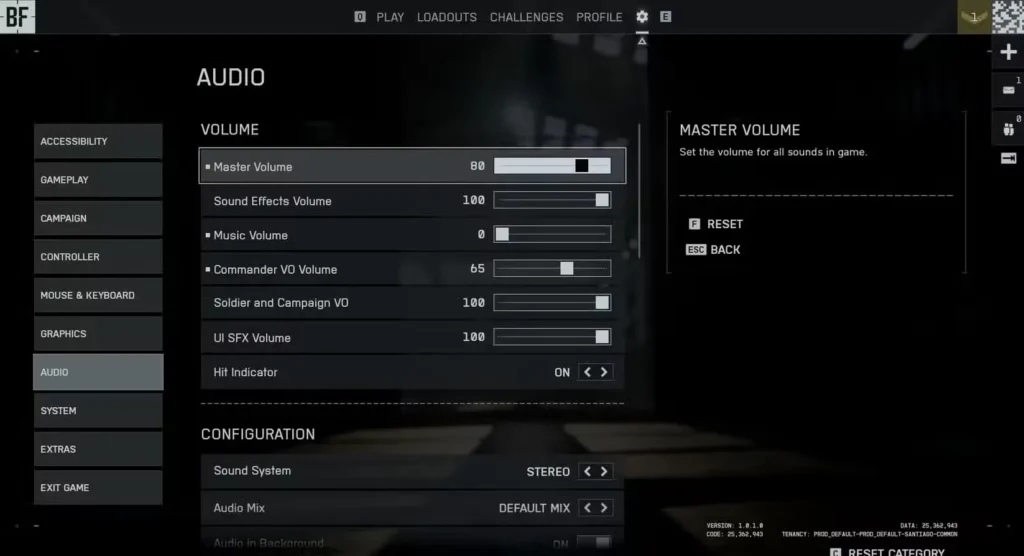
Common Settings Mistakes to Avoid
1. Copying Pro Settings Blindly What works for streamers might not work for you. They’ve often spent thousands of hours developing muscle memory around specific configurations.
2. Changing Everything at Once Adjust one category at a time. Otherwise, you won’t know what actually improved your performance.
3. Ignoring Training Ground Practice Settings mean nothing without adaptation time. Give yourself at least 5-10 matches to adjust before reverting changes.
4. Neglecting Audio Visual settings get attention, but audio provides intel that literally lets you see through walls. Don’t sleep on spatial audio cues.
5. Keeping Controller Vibration On I know it feels cool, but try one session without it. Most players never go back.
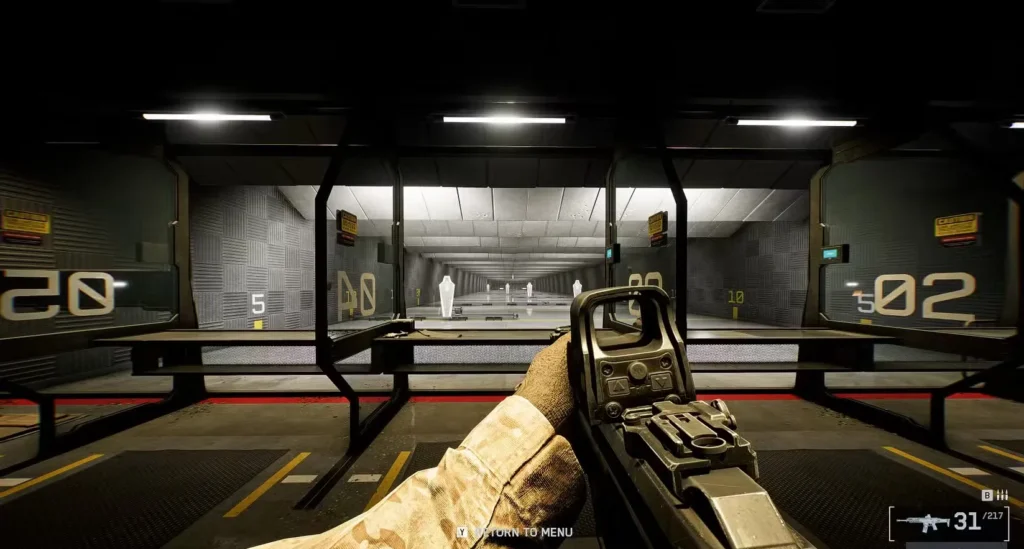
Final Thoughts: Your Settings, Your Way
Here’s the reality: these recommendations provide an optimized starting point, but Battlefield 6’s beauty lies in its flexibility. The “best” settings are ultimately the ones that feel natural to you.
Start with this foundation, then experiment. Pay attention to which engagements feel smooth versus clunky. Are you losing gunfights because your sensitivity is too high for precision shots? Or are you getting flanked because you can’t turn fast enough?
The meta-game of settings optimization is ongoing. As you progress through all the tips and tricks the game offers, your preferences may evolve. That’s completely normal.
Most importantly: don’t let settings paralysis keep you from playing. Get 80% there, then learn through actual battlefield experience. The best training ground is live combat.
Now get out there and start ranking up. Those Field Specs won’t unlock themselves, and those objectives need capturing.
See you on the battlefield, soldier.
What settings worked best for you? Share your configuration in the comments or join the discussion on the Battlefield 6 subreddit. And if you found this guide helpful, check out our complete library of Battlefield 6 guides for everything from weapon loadouts to advanced tactics.
